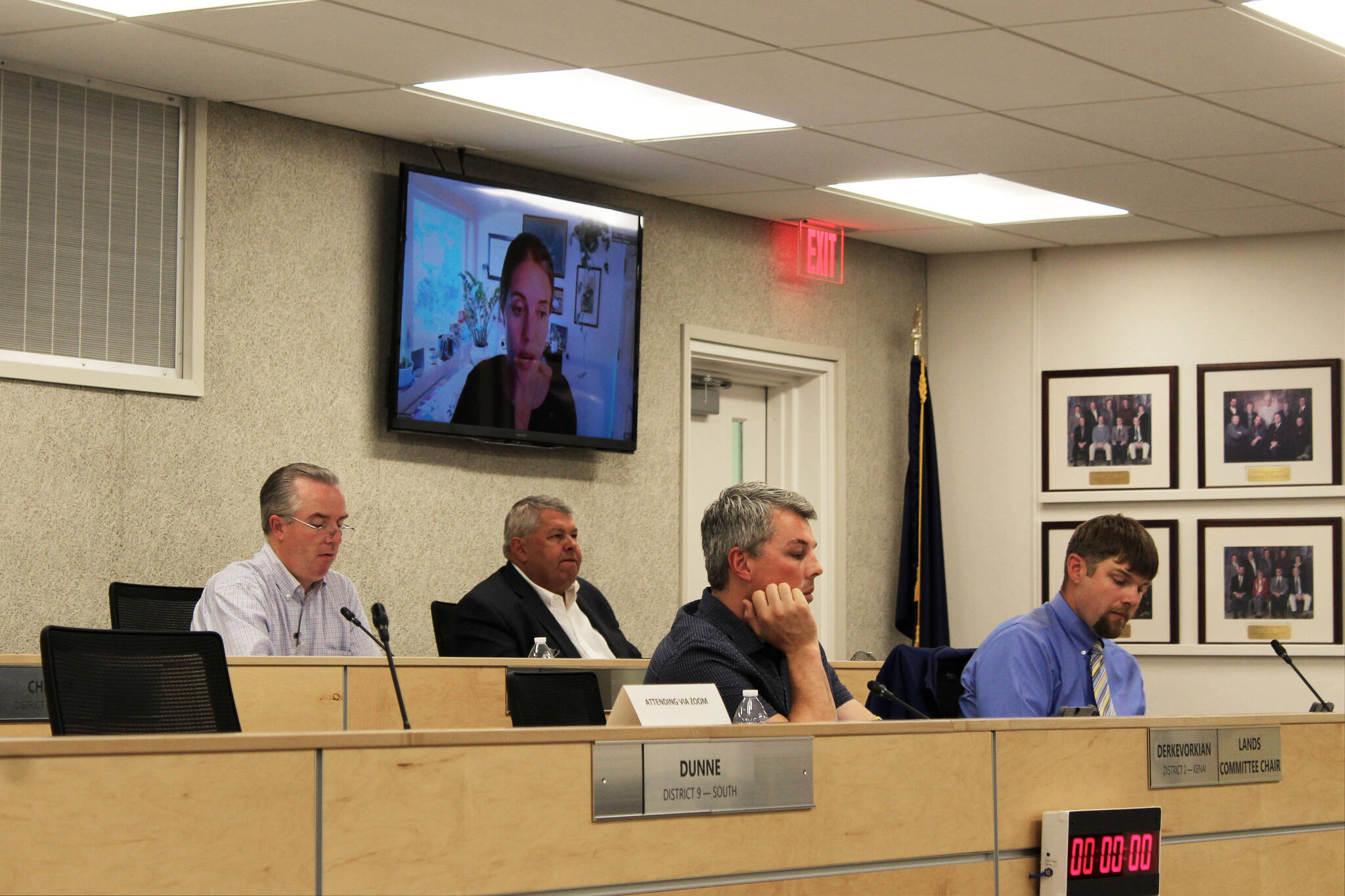State health officials emphasized the importance of vaccines in combating the COVID-19 pandemic and promoted treatments known to be effective against the virus during a joint work session with the Kenai Peninsula Borough Assembly on Tuesday.
The work session immediately preceded the assembly’s regular meeting, which lasted until nearly midnight and saw several hours of testimony from many members of the public about COVID-19, including vaccinations, treatment and mandates.
The panel included people with the Alaska Department of Health and Social Services and Central Peninsula Hospital, including Chief Medical Officer Dr. Anne Zink, Dr. Coleman Cutchins, Dr. Joe McLaughlin and Dr. John Bramante, of Central Peninsula Internal Medicine at Central Peninsula Hospital in Soldotna.
Bramante spoke about the strain currently being experienced at CPH, where he said around 60% of staff have been vaccinated against COVID-19.
“The hospital has been over capacity for basically the month of August,” Bramante said, adding that “over capacity” means housing more patients than CPH is licensed for. A lack of beds, however, was not as much of a problem as a lack of hospital staff, Bramante said. Though he doesn’t think employee burnout is too bad yet, he said he’s concerned about the sustainability of how the hospital is currently operating.
As of Thursday, CPH was operating at 100% capacity and was treating 16 patients who were positive for COVID-19. Of those, two were fully vaccinated, five were in the ICU and one was on a ventilator. Bramante said Tuesday that the hospital has been putting two people to a room when the facility is way over capacity and using a separate area to administer monoclonal antibodies when the ER is full.
When it comes to treating patients with COVID-19 at CPH, Bramante said care is more standardized than it was 18 months ago. The decision to admit a patient, he said, really comes down to that patient’s oxygenation needs and are treated depending on their degree of decompensation.
“The people who are seen in the ER are basically triaged and those who have oxygen saturations below 88 pretty much get admitted,” Bramante said. “Those who are in that marginal zone, sometimes it depends on what their outpatient setting is, and whether they’ve got the family or social support to safely be at home. Bed space has not factored into it here yet.”
While there are treatment options available for people with COVID-19 — including monoclonal antibodies, the best tool currently available is the vaccine, said Cutchins. The strength of vaccines, Cutchins said, is seen in the way they teach a person’s immune system to eliminate a virus.
“When we talk about viruses in this category, unfortunately, there just aren’t good treatment options,” said Cutchins. “The old saying in viral infectious disease is mitigation, not medication. We just don’t have medications that treat this family of viruses very well.”
Zink echoed those comments, noting that the goal of the vaccine is to minimize the impact on severe illness and death, which she said it has been shown to do. That said, the average age for hospitalized breakthrough cases has gone down in recent months.
“We’re seeing much younger patients being hospitalized who are unvaccinated, versus older patients who have multiple comorbidities and — even though they’re vaccinated a small bout of COVID can be enough to set them over the edge,” Zink said. “It’s becoming a big discrepancy between younger, healthier patients who are unvaccinated who are being hospitalized versus older, vaccinated patients who are being hospitalized.”
Also discussed in the work session, which was about an hour long, was the concept of natural immunity, which officials said can offer some protection but can lead to higher rates of reinfection among people who are unvaccinated. Additionally, the highly contagious delta variant, officials, said is driving how people are being asked to help mitigate the virus’ spread.
The assembly’s full work session can be viewed at kpb.legistar.com.
Reach reporter Ashlyn O’Hara at ashlyn.ohara@peninsulaclarion.com.

